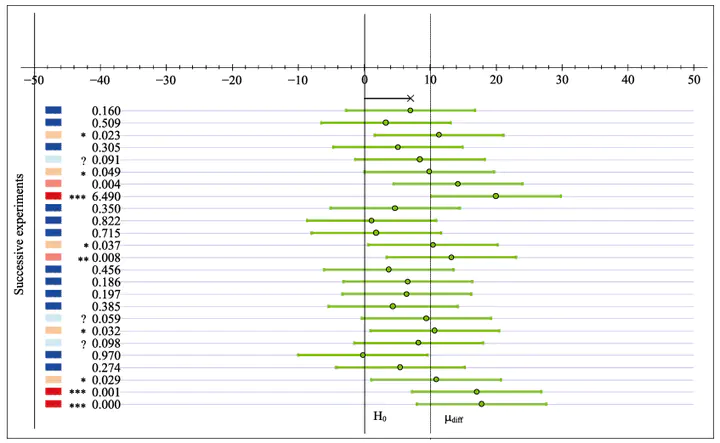 Image credit: Fig1
Image credit: Fig1
Abstract
The recent replication crisis in psychology has raised increasing concerns. Given that it is important for psychologists to understand the replication crisis and the consequent changes in the field, the present review aimed at providing an overview of the relevant events and highlighting the methodological reforms in psychology. First, we briefly recapitulated the events that raised doubt about reliability of psychological research. Then, we focused on a recent large-scale replication study (Reproducible Project:Psychology) and the following debates. In addition, three underlying causes of the replication crisis were examined:1) the overabundance of false positive results, which is mainly caused by the prevalence of questionable research practices, 2) publication bias, and 3) the over-reliance on Null-Hypothesis Significant Testing (NHST) and misunderstanding of p-values, which was confirmed by our survey among Chinese psychology students and academics. More importantly, the proposed solutions provided in the literature were also reviewed, e.g., shifting from NHST to alternative statistical methods and adopting new ways to enhance research integrity (i.e., pre-registration, full disclosure, and open data and materials of studies). Finally, we call for joint efforts by policy makers, researchers and educators to solve the replication crisis.